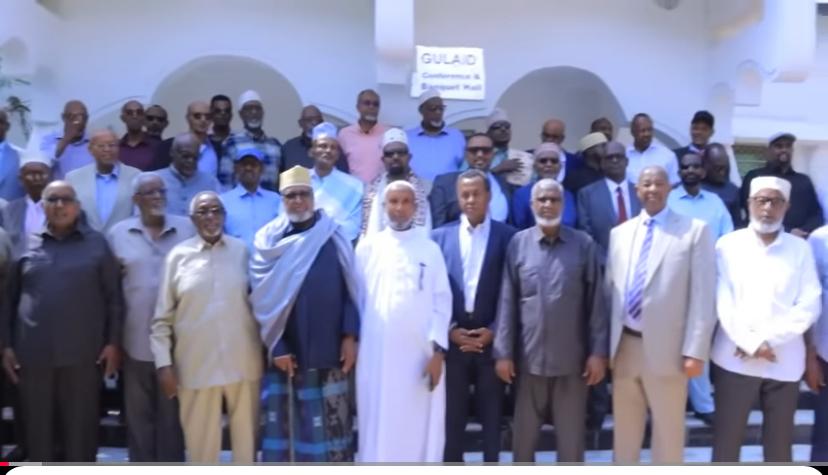By cph
Copyright puntlandpost

Hargeisa (Opinion) — Last week, political elites in Hargeisa hosted a dinner banquet for retired Colonel Ahmed Omar Jess. Former senior Somali National Movement (SNM) officers spoke admiringly of Jess, crediting him with refusing the Somali Government’s (1969–1991) orders in 1988 to continue commanding troops against SNM fighters.
In 1988, Hargeisa and Burao were largely destroyed after the SNM launched a surprise offensive and engaged the Somali army in weeks of fighting before retreating to the countryside. Jess later defected to the SNM at a time when the Somali Patriotic Movement (SPM), the organisation he would eventually lead, was still in its infancy. His defection dealt a significant blow to the regime of President Mohamed Siyad Barre.
Jess’s late brother, Colonel Mohamed Omar Jess, had been a member of the Supreme Revolutionary Council, the junta that overthrew Somalia’s civilian government on 21 October 1969. Colonel Jess himself was reluctant to be stationed in Hargeisa, but President Siyad Barre insisted on the appointment. Although aware of growing discontent within Ogaden politicians, Barre did not consider the SPM a major threat compared to the SNM or the United Somali Congress (USC, founded in 1989).
As senior leader of the SPM, Jess took part in a summit at Mustahil (Ethiopia) alongside Abdirahman Tuur (SNM Chairman) and General Mohamed Farah Aidid (chairman of a USC faction based in Ethiopia) prior to the fall of Siyad Barre in 1991. The three leaders devised a plan for Somalia’s post-Barre future. However, the plan collapsed when members of the Manifesto Group organised an uprising in Mogadishu on 30 December 1990. By late January 1991, Siyad Barre had fled to Gedo. Ali Mahdi Mohamed, a Manifesto signatory, was appointed Interim President of Somalia. In May 1991, the SNM unilaterally declared secession in Burao, an announcement rejected by both General Aidid and President Ali Mahdi.
By early 1991, the SPM controlled much of southern Somalia, except Mogadishu and its surrounding regions. In February 1991, USC forces captured Afgoye and advanced into areas held by the SPM. Still adhering to the Mustahil Summit agreements, Jess retreated to Kismayo. After Siyad Barre was forced into exile in 1992, Jess manoeuvred to have what remained of his SPM wing incorporated into the Somali National Alliance (SNA), a coalition led by General Aidid which claimed control over much of southern Somalia, including South Mogadishu, as well as parts of Galguduud and Southern Mudug.
Between June 1992 and December 1992, a man-made famine devastated southern Somalia, particularly Lower Shabelle, Bay and Bakool regions, killing more than 300,000 people. Colonel Jess, based in Baidoa at the time, was partly responsible for worsening the crisis. Forces under the Somali National Alliance, in which Jess was a senior figure, looted relief supplies intended for famine victims. Ironically, the Mayor of Berbera, Abdirashid Iddin, described Colonel Jess as a “mujahid” (holy warrior) who had taken up arms against Siyad Barre’s regime.
In December 1992, shortly before Operation Restore Hope began, Colonel Jess authorised the massacre of more than 100 Harti clansmen in Kismayo. The New York Times reported: “The killings were directed by the clan leader who controls Kismayu in a move to eliminate educated Somalis who might support the Americans, United States officials in Somalia said in interviews over the past two days. All the victims were Harti, who have deep roots here and say they regard other clans as occupiers”
Amnesty International wrote that “Sean Devereux, a UNICEF employee and British citizen, was shot dead by unidentified gunmen in Kismayu, allegedly because of his criticisms of the killings there the previous month.”
As a former member of the Somali National Movement, it was nauseating to watch political elites in Hargeisa celebrate a man with such a record. In honouring a war criminal, they undermined our historical grievances dating back to the 1960s and 1980s, grievances which form the very foundation of our case for secession.
By Mohamud S. M. Abdirahman , Hargeisa.



